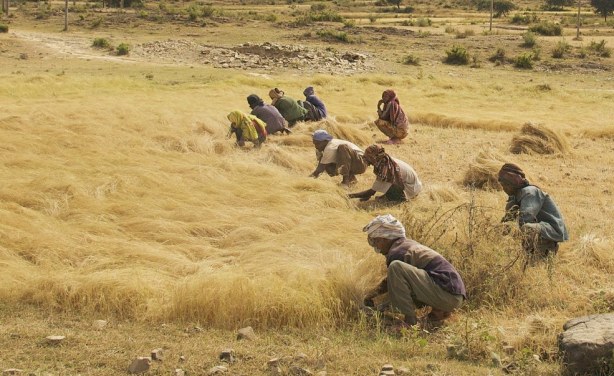 |
| Men and women harvest the Ethiopian staple grain teff in a roadside field between Axum and Adwa in Northern Ethiopia |
Fitsum Arega, an Ethiopian diplomat who is the current Ethiopian Ambassador to the United States has confirmed the news in a tweet, celebrating the 'good news'.
"Thank you all. I just learned that The Court of The Hague ruled against the Teff patent holder. This is great news. I hope we can learn from this that our national assets must be protected by Ethiopians and friends of Ethiopia," Arega, who's also a former director general of the Ethiopian Investment Commission and the Chief of Staff of the Prime Minister of Ethiopia tweeted.
Ealier, Arega has also called the Teff patent legal battle, "an issue of our inability to own our national assets in the international legal system". "We need to defend it," he added.
The embassy of the Netherlands in Ethiopia confirmed the news. "This embassy confirms the November ruling. The reason for the late announcement is the time for appeal was still running. As no appeal was made, the verdict is now final: the claim to processing teff by patent holder is null and void in the Netherlands," it said.
Ethiopia has been in a legal tussle with a Dutchman owning a patent on the production of Teff flour. Teff, famed for yielding white flour of good quality is used in injera and other traditional Ethiopian food.
It is widely known as part of Ethiopia's cultural heritage, and the patenting of the production of the flour is seen as controversial. In recent years, Ethiopia has complained that this is totally inaccurate - as they have been using teff for centuries, after all - and that the patent prevented Ethiopian companies from exploiting a growing global market for teff.
The patent right will enable Ethiopia to supply the product legally to the European market, an opportunity that'll motivate farmers to produce more and thereby help the country earn due recognition.
No comments:
Post a Comment